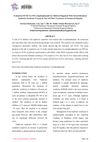1 citations,
February 2023 in “Plants” BB4CMU rice bran oil may help treat hair loss and gray hair.
 2 citations,
August 2002 in “BJUI”
2 citations,
August 2002 in “BJUI” Finasteride can cause low platelet count in rare cases.
Alopecia areata is an autoimmune disease that targets hair follicles.
 52 citations,
October 2004 in “Veterinary dermatology”
52 citations,
October 2004 in “Veterinary dermatology” Melatonin and mitotane treatment led to hair re-growth in 62% of dogs with Alopecia X, but this was not always linked to normal hormone levels.
 December 2022 in “Jurnal Farmasi Klinik Base Practice”
December 2022 in “Jurnal Farmasi Klinik Base Practice” Cyclophosphamide helped 59.4% of children with steroid-resistant nephrotic syndrome but caused side effects in 40.6%.
 January 2022 in “Current Enzyme Inhibition”
January 2022 in “Current Enzyme Inhibition” New nonsteroidal molecules can potentially increase dihydrotestosterone in neurons by blocking certain enzymes, without affecting prostate and seminal vesicle weight.
 67 citations,
October 2005 in “Annals of Oncology”
67 citations,
October 2005 in “Annals of Oncology” Fulvestrant is a well-tolerated new treatment for advanced breast cancer that may delay chemotherapy.
 88 citations,
February 2008 in “Journal of Medicinal Chemistry”
88 citations,
February 2008 in “Journal of Medicinal Chemistry” Scientists made the first metal-based compounds from a nonsteroidal antiandrogen drug, which showed potential in fighting both hormone-dependent and independent prostate cancer cells.
 1 citations,
October 2023 in “Frontiers in endocrinology”
1 citations,
October 2023 in “Frontiers in endocrinology” Regulating certain sex hormones may help delay facial aging.
 June 2023 in “Journal of Ayurvedic and herbal medicine”
June 2023 in “Journal of Ayurvedic and herbal medicine” Pumpkin seeds may improve health due to their rich nutrients and potential to treat various conditions.

A teenager had both alopecia areata and vitiligo, which are rare to occur together.
 September 2013 in “Molecular Biology”
September 2013 in “Molecular Biology” The document suggests that activating autophagy might help with regeneration by removing old and damaged cells.
 December 2011 in “InTech eBooks”
December 2011 in “InTech eBooks” Systemic corticosteroids can help treat rapidly spreading vitiligo but require more research for safer use.
 58 citations,
April 2012 in “Journal of the American Academy of Dermatology”
58 citations,
April 2012 in “Journal of the American Academy of Dermatology” Graft-versus-host disease is a complication where donor immune cells attack the recipient's body, often affecting the skin, liver, and gastrointestinal tract.
 17 citations,
August 2012 in “Archives of Pharmacal Research”
17 citations,
August 2012 in “Archives of Pharmacal Research” Acankoreoside J from Acanthopanax koreanum may help promote hair growth.
 11 citations,
October 2018 in “Pediatric dermatology”
11 citations,
October 2018 in “Pediatric dermatology” Leflunomide and anthralin may effectively treat severe alopecia areata.
 7 citations,
December 2008 in “Journal of Dermatological Science”
7 citations,
December 2008 in “Journal of Dermatological Science” Progranulin overexpression leads to shorter, thinner hair and increased cell death in mouse hair follicles.
 August 2018 in “SDÜ SAĞLIK BİLİMLERİ DERGİSİ”
August 2018 in “SDÜ SAĞLIK BİLİMLERİ DERGİSİ” No method fully prevents hair loss from chemotherapy, but some methods can reduce it and improve quality of life.
 20 citations,
February 2009 in “Chemistry & Biodiversity”
20 citations,
February 2009 in “Chemistry & Biodiversity” Ganoderma lucidum may help treat prostate cancer by blocking male hormones and slowing cancer cell growth.
 9 citations,
January 2014 in “Annals of Dermatology”
9 citations,
January 2014 in “Annals of Dermatology” Some breast cancer patients on hormonal therapy may develop male or female pattern hair loss, which can sometimes be improved with topical treatments.
 60 citations,
June 1997 in “Drugs & Aging”
60 citations,
June 1997 in “Drugs & Aging” Mitoxantrone with a corticosteroid helps manage symptoms for some advanced prostate cancer patients but doesn't extend life.
 19 citations,
July 2018 in “Medicines”
19 citations,
July 2018 in “Medicines” Juniperus plants contain compounds with potential for developing various medical treatments.
 15 citations,
July 2015 in “Journal of Essential Oil Bearing Plants”
15 citations,
July 2015 in “Journal of Essential Oil Bearing Plants” Thuja orientalis and Thuja occidentalis essential oils have medicinal properties useful for developing treatments with antimicrobial and bioactive effects.
 8 citations,
October 2020 in “Pharmaceutics”
8 citations,
October 2020 in “Pharmaceutics” Dutasteride-loaded nanoparticles coated with Lauric Acid-Chitosan show promise for treating hair loss due to their controlled release, low toxicity, and potential to stimulate hair growth.
 90 citations,
May 2019 in “Drugs”
90 citations,
May 2019 in “Drugs” Long-term use of azole antifungals can cause hair loss, hormonal imbalances, and severe skin reactions.
36 citations,
October 2009 in “Journal of biological chemistry/The Journal of biological chemistry” Two new compounds were found to build bone and muscle without affecting reproductive organs and skin oil glands.
 11 citations,
November 2019 in “Clinical Case Reports”
11 citations,
November 2019 in “Clinical Case Reports” A Brazilian teenager with severe hair loss had total hair regrowth with no side effects after using tofacitinib.
 16 citations,
April 2017 in “Journal of Cosmetic Dermatology”
16 citations,
April 2017 in “Journal of Cosmetic Dermatology” Ficus carica leaf extract may help treat skin disorders by reducing inflammation and androgen effects in skin cells.
9 citations,
June 2022 in “Plants” Shallot extract may help with hair growth and treating hair loss.
 8 citations,
February 2022 in “Molecules”
8 citations,
February 2022 in “Molecules” Asparagus racemosus root extract reduced sebum and pore size in men but not in women.

























